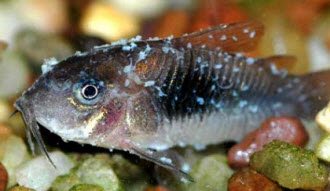7 Ways To Avoid Fish Ich In Your Fish Tank
In the article it is spoken in detail about 7 Ways To Avoid Fish Ich In Your Fish Tank. Imagine looking into your fish tank one day and seeing your listless fish with tiny white spots on it looking as if someone powdered it with salt. This is a clear sign of fish ich and not only do they make your beautiful fish look weird and ugly, they will also be detrimental to the health of the fish.

Fish Ich
Fish ich can affect anyone’s aquarium anytime and it is not an unusual aquatic disease but it is one that you would need to address as fast as possible. The affected fish needs to be quarantined and treated, the entire tank needs to be clean out and sanitized and the sick fish needs to be closely monitored. But rather than have to solve the problem on hand, what you should be focusing on is to avoid introducing fish ich to your fish tank in the first place. This is because as always, preventing is always the best cure.
7 Ways To Stop Fish Ich
Here are 7 ways that you could put in place to ensure that your precious fish are never affected by fish ich:
- Perform your water changes diligently. You must do a water change at least once a week or at the worst once every two weeks. But a water change is more than just throwing out the old water and pouring in new water. You should only remove and replace about 20% of the water in your fish tank during each water change. Changing the entire tank of water will actually harm the fish and should be avoided as much as possible unless it is because of a disease. Also, the replacement water should never be taken straight from the tank. It should be allowed to sit in a bucket for at least 24 hours before introducing it into the existing aquarium water.
- Vary the the fish food. Could you imagine eating the same food each day for the rest of your life? The different brands of food sold on the shelves of pet shops each stress a different nutritional need and content so change food types once in a while. Also if your fish feeds on live food which you could get from your pet shop, use that for main meals and keep the packaged fish food as supplements.
- Reduce the amount of stress that your fish has to endure. The more stress the fish is placed under the more the more likely it is to fall sick. Stress can come in so many factors, not just physical. Do not place the fish tank in an area that has heavy human traffic. Place rocks and plants in your fish tank, not just as decoration but as little hiding places that your fish can escape to when they feel stressed. Control the chemical and well as temperature fluctuations well and monitor them with a proper test kit.
- Do not breed too many fish in one tank. More is less. Having too many fish not only stresses the fish out but it also increases the chance of disease spreading.
- Never introduce a new fish immediately into your existing fish tank. Always quarantine new fish for no less than 4 days before allowing it to mix with your existing fish. This is to rule out the possibility of e fish having fish ich and spreading it to your existing fish. Fish ich has a life span of 4 days and if there are no signs of disease after the period is over, the fish is fine and ready to be integrated into your aquarium.
- Choose your pet shops well. There are many pet shops around today which has a tendency to have several tanks sharing one filter. These merchants do not concern themselves with fish disease too much because they buy fish in bulk and sell them for a higher price. Regardless of how great a filter may seem, there is always a chance of disease being spread through the filtration filter too. Also, when you bring your fish back home from the shop, never mix the water they came in with the water in your fish tank.
- Do not buy plants that are sold from a tank with fish in it. Always buy plants that are sold from a separate tank. If the plant that you bought did come from a tank of fish in the pet shop, then make sure that you quarantine the plants just like you would quarantine a new fish. The 4 day period would ensure that any fish ich has completed its life cycle and died before it had a chance to spread.



